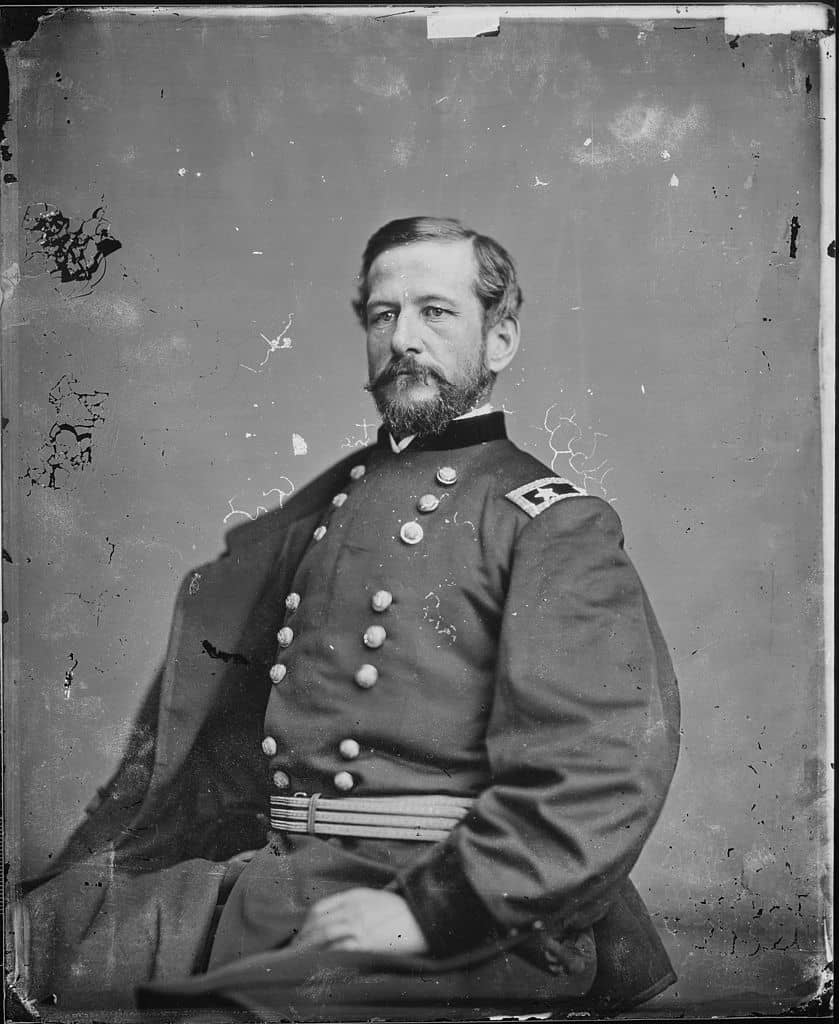
ADVERTISEMENT - CONTINUE READING BELOW
6. The little-known Battle of Upperville was critical in Stuart’s screening of Lee’s army
On June 21, 1863, frustrated Union cavalry leaders attempted yet again to penetrate the Confederate Cavalry screen and locate the main body of Lee’s army. At the same time, Stuart hoped to avoid further combat and rest his men. Union commander Alfred Pleasanton requested infantry support for his next thrust at the Confederate screen. He received a brigade of infantry from V Corps, then commanded by George Meade. Pleasanton attacked Stuart’s positions near Goose Creek on June 21. The latter chose to initiate a fighting withdrawal, using the terrain, fences, and stone walls to shield his dismounted cavalry. The fighting began in the early morning hours of that Sunday, and continued throughout the day, as Stuart’s men steadily withdrew to Upperville fighting a delaying action most of the way.
At the same time, John Buford’s command arrived at Upperville and attacked the Confederate detachments stationed outside the town. When Stuart’s command arrived they joined in the fighting. By the end of the day, after several hours of steady fighting, the Confederates had lost about 180 men. Union losses were roughly 210 men. Both sides lost uncounted horses, losses which the Confederates especially could ill-afford. Following the fighting at Upperville, Stuart fell back to prepared defensive positions in Ashby’s Gap. Within days the bulk of Lee’s army was across the Potomac, a fact learned by Hooker on June 24. He began a more serious pursuit the following day. Hooker ordered his Army to concentrate in Maryland. Although a critical part of the Gettysburg Campaign, the Battle of Upperville receives little coverage other than in serious studies of Lee’s invasion of the north.

